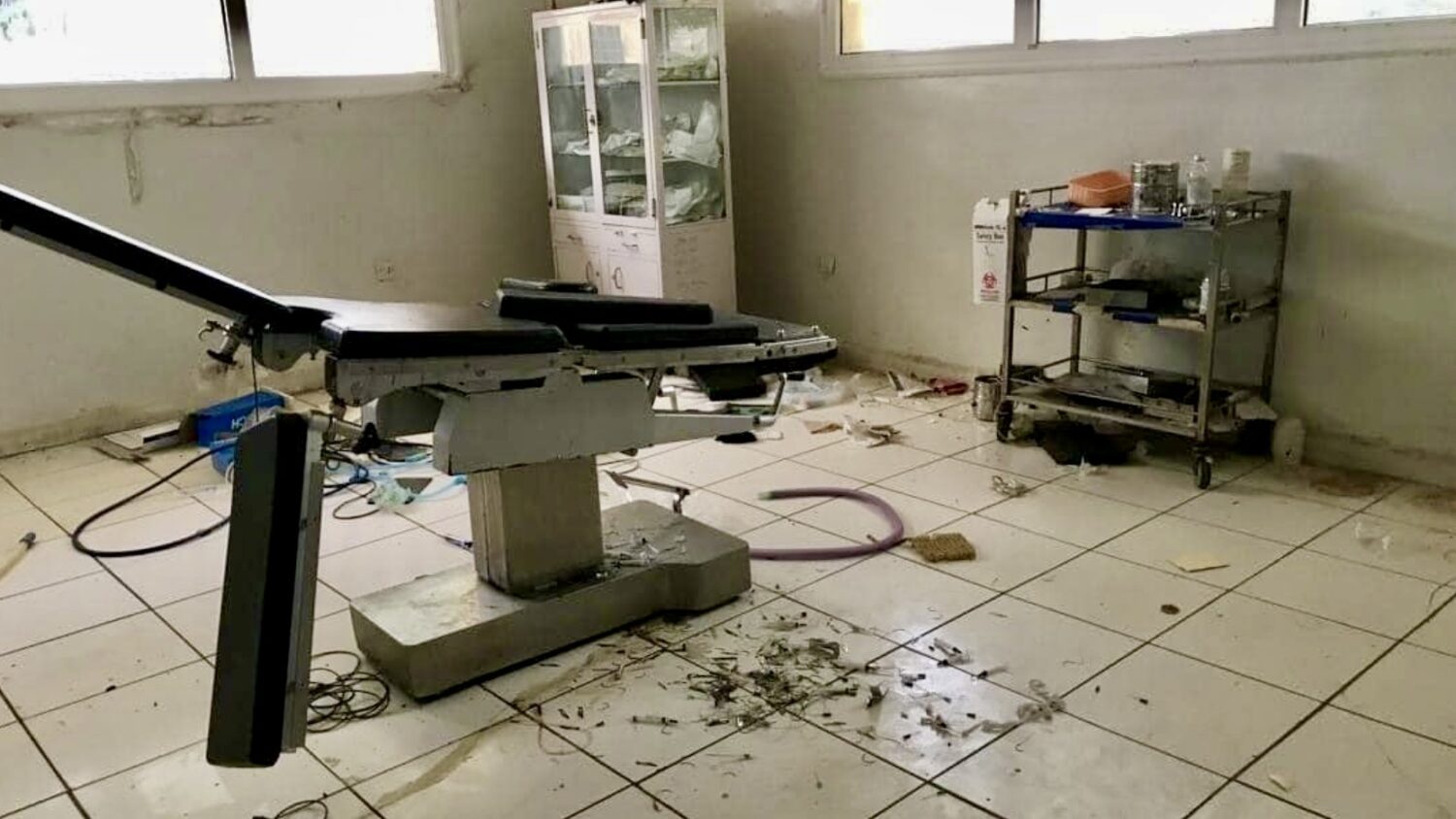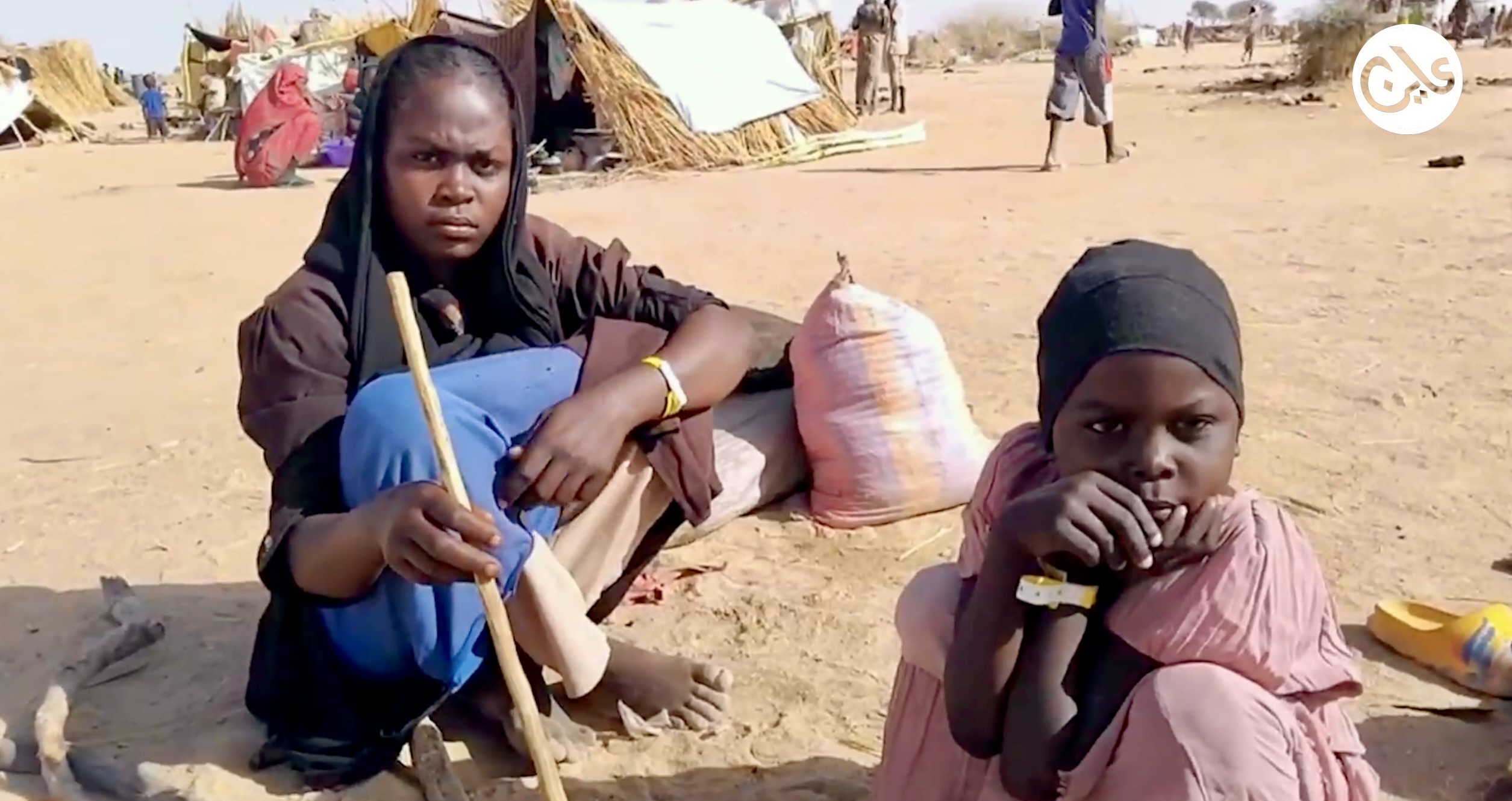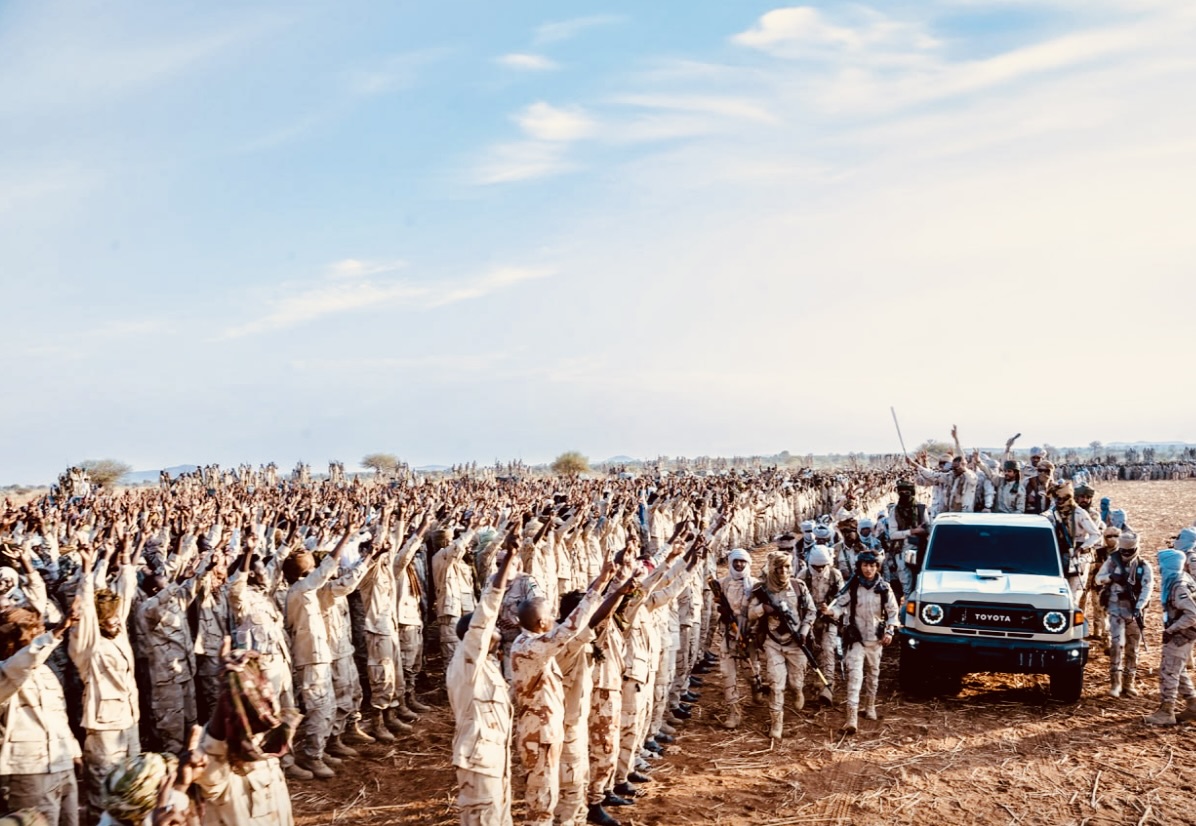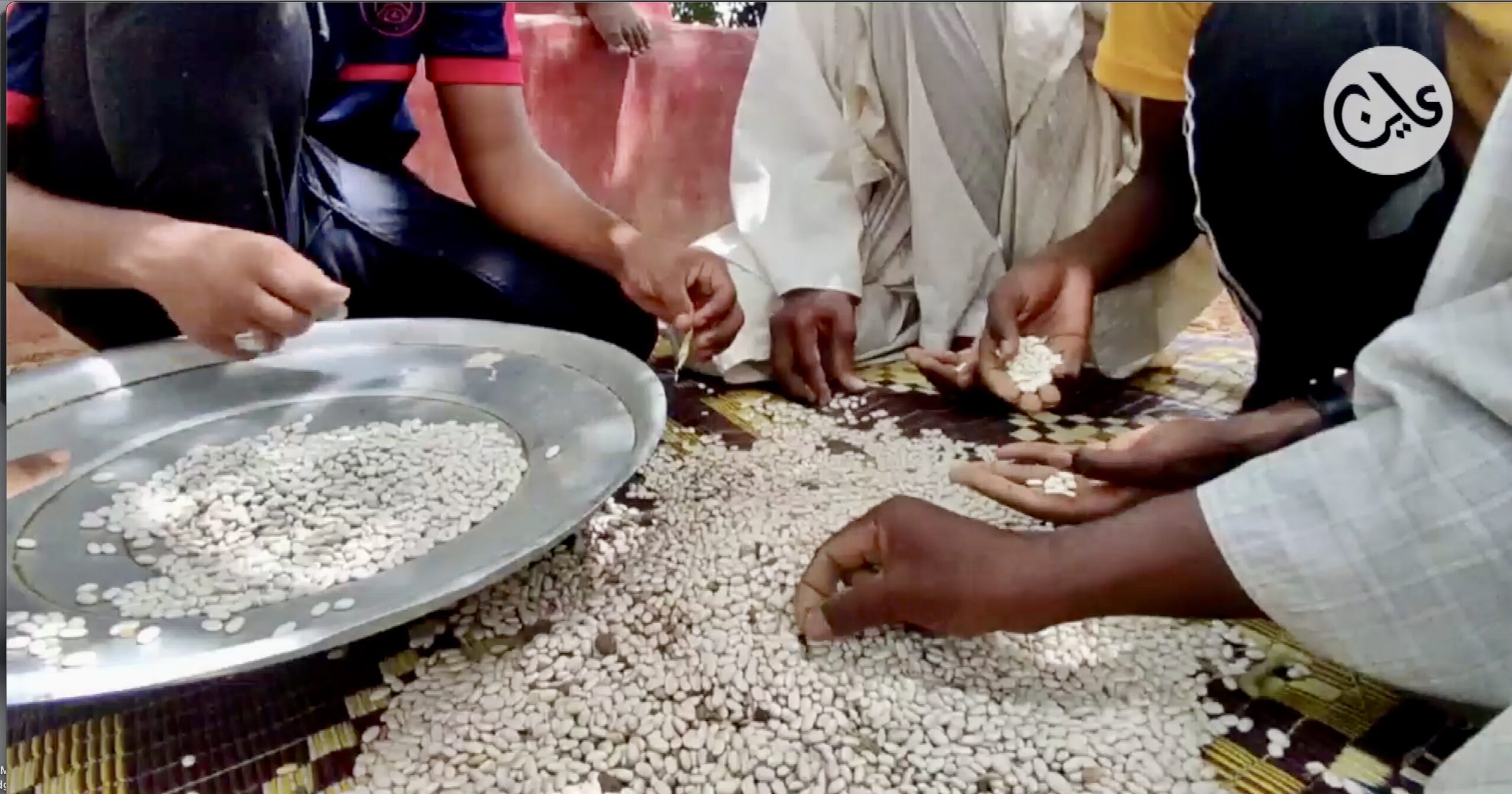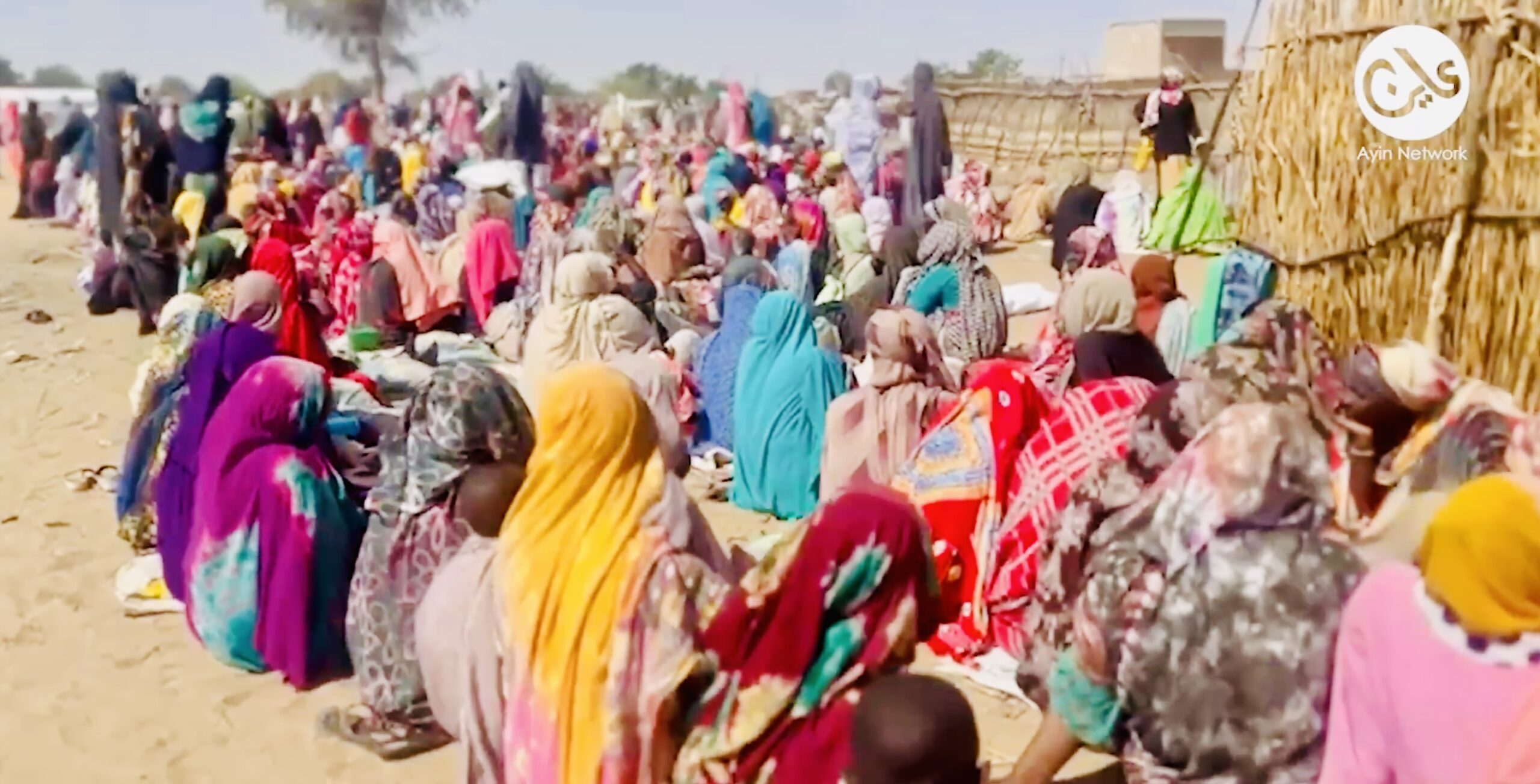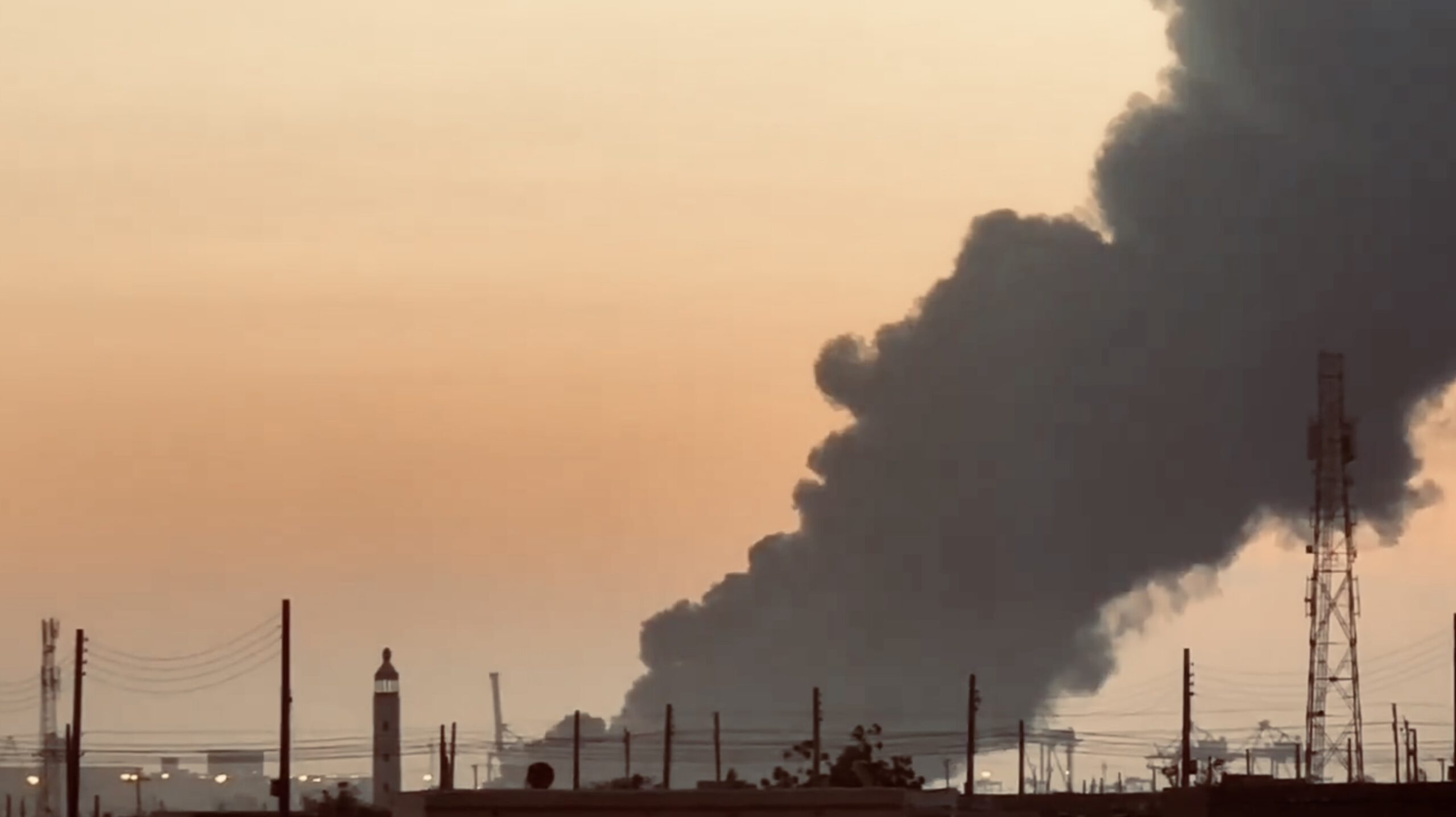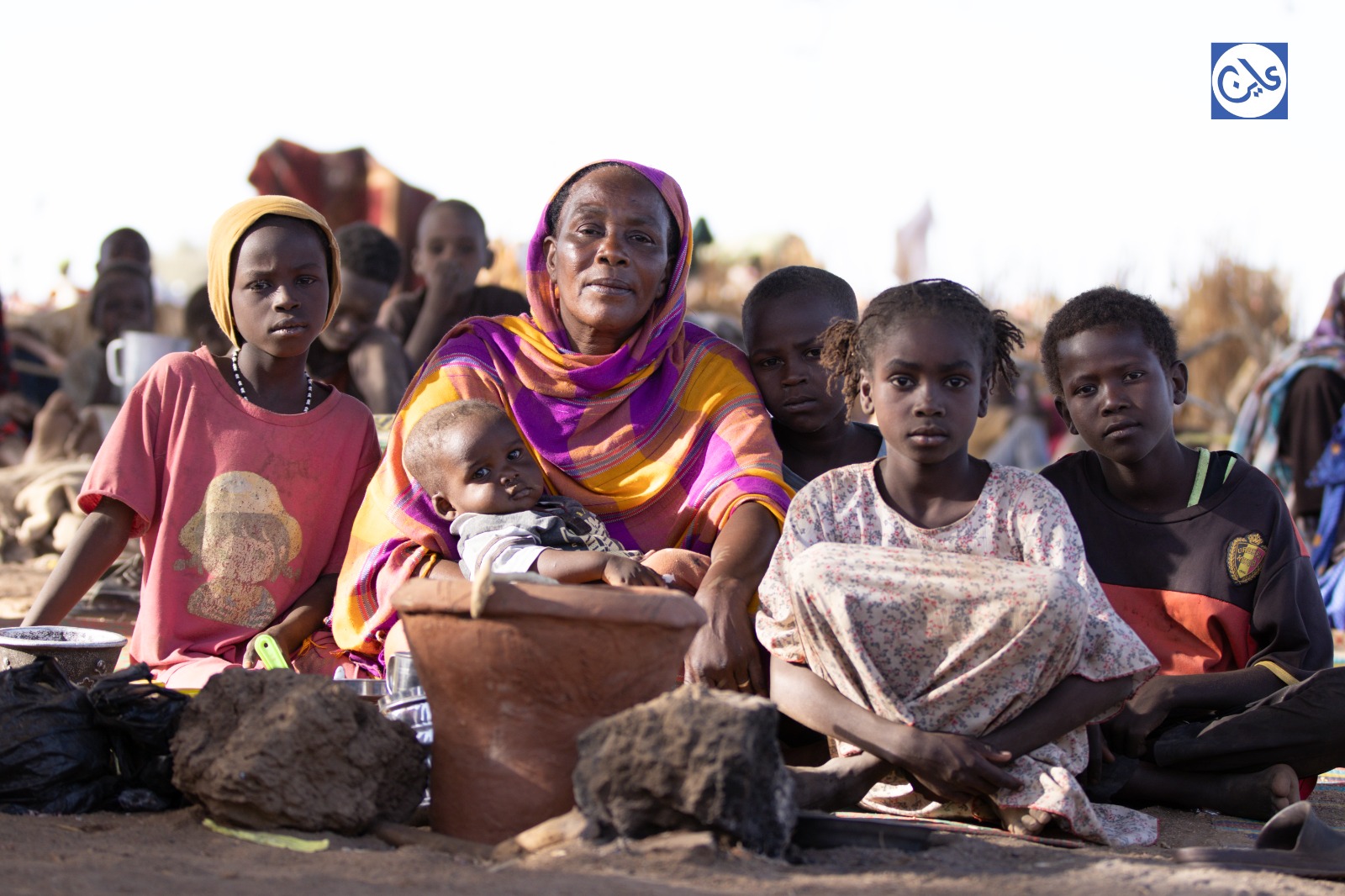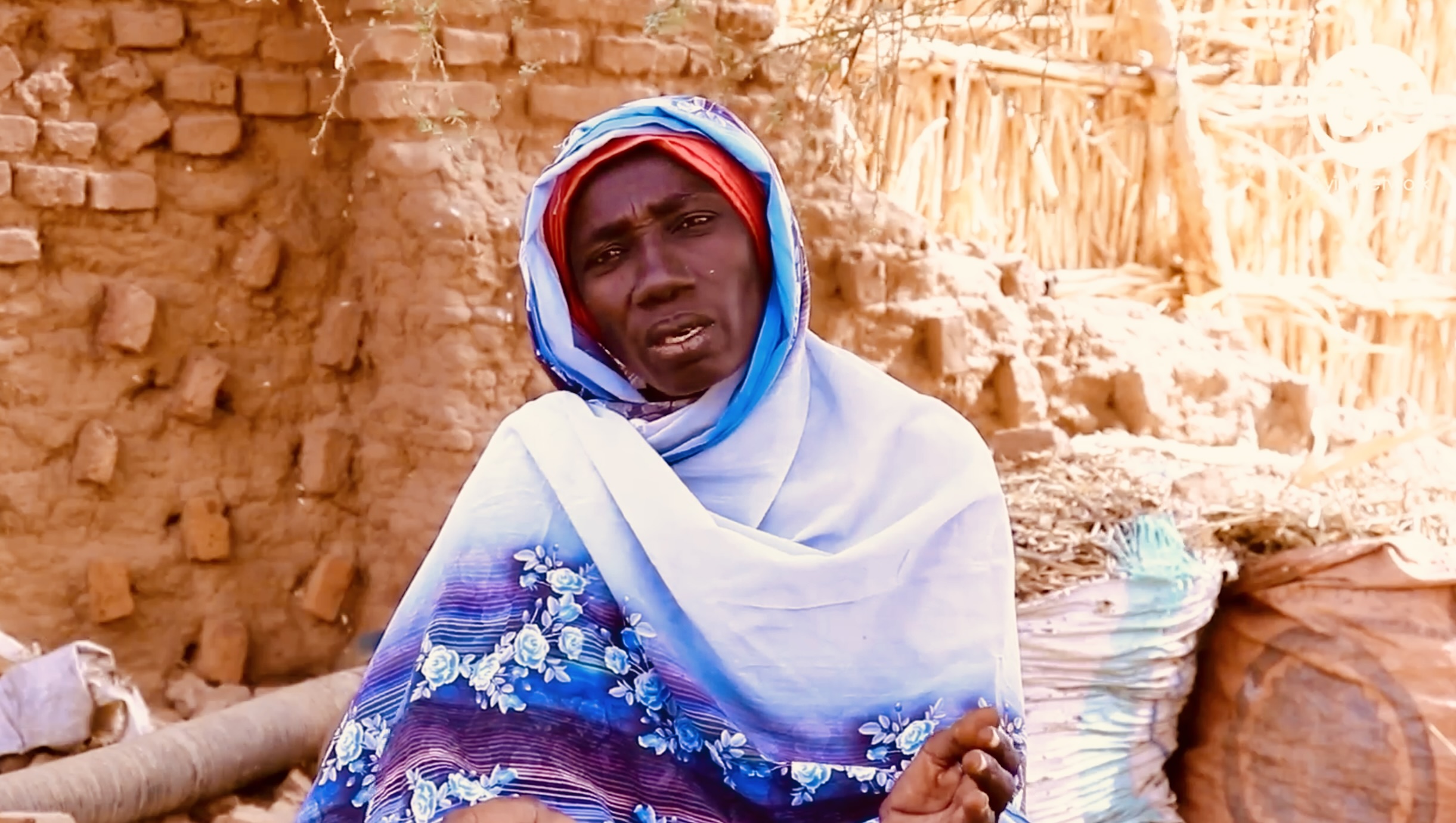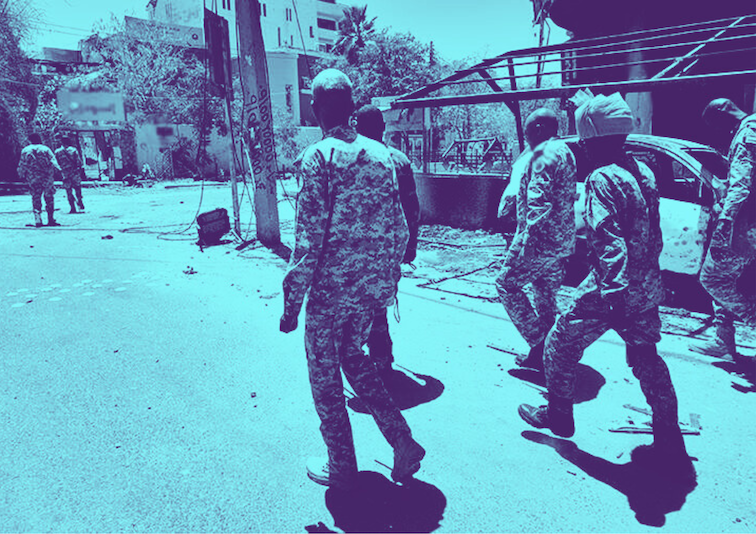Sudan’s healthcare, the first casualty of war
This report was done in collaboration with the Sudan Hub for Human Rights.
11 March 2024
The health sector was one of the first casualties of the war. As conflict spreads, medical facilities continue to be targeted by the warring parties and medical staff are compelled to leave the war zones, according to Sudan’s Doctors’ Union, to the point where large swathes of the country struggle with no medical support whatsoever.
“Everyone remembers how medical facilities were among the first sites to be destroyed, as RSF troops raided hospitals and clinics while the air force indiscriminately bombed these buildings,” says Omar el Najeeb, Sudan’s former health minister.
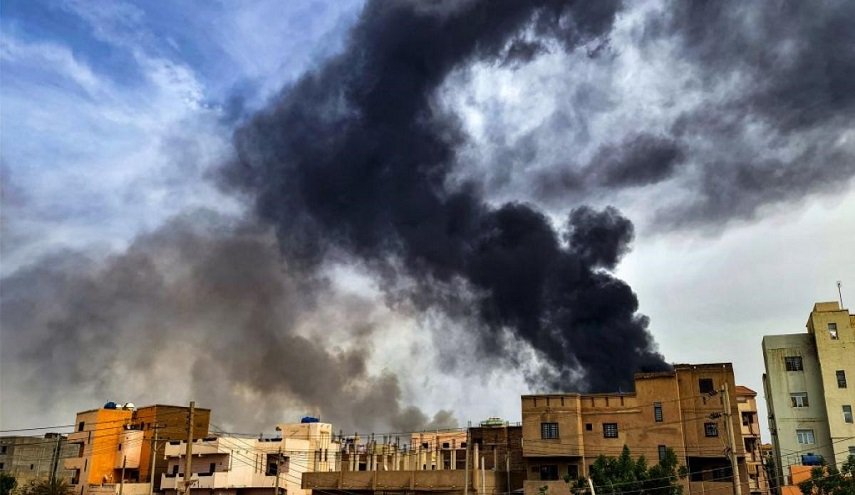
Since mid-April last year, a war of dominance between Sudan’s army and the paramilitary Rapid Support Forces (RSF) took place. The latter has made in-roads into the capital and controls most of the Darfur region after ten months of battle. Medical facilities have been targeted by both warring parties, contravening international humanitarian law, often in a bid to prevent the other side from accessing medical treatment.
The viability of the health sector and medical facilities is all the more vital as the fighting has intensified in recent weeks. The advances of the RSF, particularly in Darfur and in the state of Al-Jazeera, central Sudan, have been marked by attacks on civilians, destruction of property, and looting of medical facilities. They have also caused major new population displacements. In areas not directly affected by the conflict, the population influx has weakened healthcare facilities that were not calibrated to receive so many patients.
As of 6 February 2024, Insecurity Insight, a research organisation that supports humanitarian actors, had recorded 267 attacks on the medical sector since the start of the war, 58 medical facilities have been damaged or destroyed, 54 health workers have been killed, 28 kidnapped, and 63 injured.
According to the World Health Organization, 70 to 80% of medical facilities in areas affected by the conflict are inoperable or inaccessible. Roughly one in every 11 health facilities run by humanitarian agencies is not functioning.
As the conflict continues, it is becoming increasingly difficult to meet the basic needs of daily life. As a result, access to healthcare is deteriorating, not only because of the fighting but also because of its consequences. “In Gezira State, it is very difficult for patients and staff to reach the hospital. There is no means of transportation other than the cart,” a doctor from the union said.
“The medical sector is in pieces, I have no other word for it. It collapsed,” says Sylvain Perron, deputy operations manager for the international medical charity, Doctors Without Borders (MSF) for Sudan. The health system in the government zones is working very badly, because it was already in a deplorable state before 15 April, and the war has accelerated that. In all the other areas, the things that are still holding together are only working because of local initiatives.” Hospitals such as Al Alban Jadeed Hospital in Haj Youssef, Khartoum, only function after local volunteers risk their lives to keep them running,” she added.
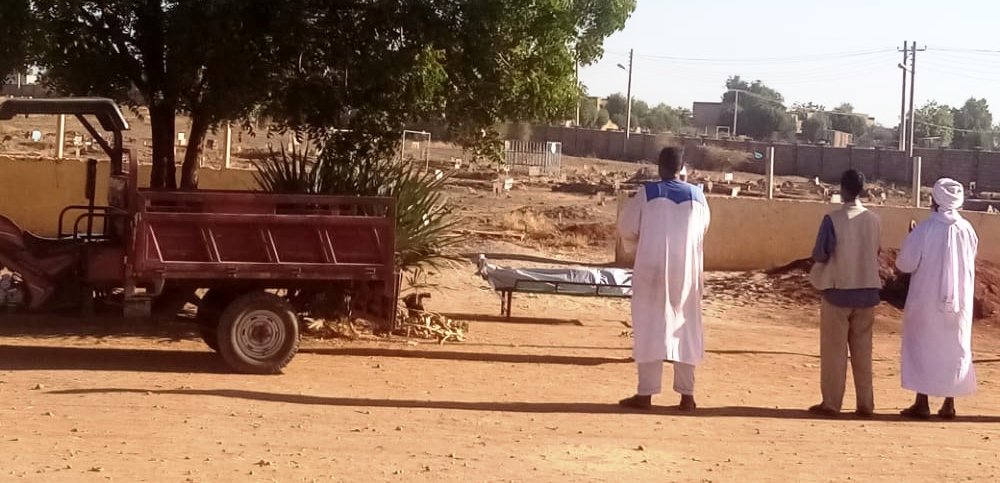
A bad past, a worse future
But even before the war, Sudan’s medical sector remained highly unequal, both socially and spatially. Wealthy elites in the capital could access medical treatment, while medical access for the majority remained few and far between.
The entire sector, both private and public, was already prone to economic and monetary crises. The supply of medicines and medical equipment and their distribution to central pharmacies, depended almost 100% on imports paid for in dollars, according to Sudan’s Pharmaceutical Association.
Because of these weaknesses, the system was easily crippled in the very first weeks of the war. When the conflict broke out in Khartoum, not only did it physically destroy a large part of the medical facilities from the outset, but it also destroyed the banking system and drained the already weakened public finances. The de facto authorities, retreating to Port Sudan, found themselves unable to ensure the payment of salaries to civil servants in the pharmaceutical and medical sectors and the supply of pharmacies, which had already been affected by looting and military operations in the war zones.
As a result, a very large number of doctors have left their posts to seek refuge elsewhere. “All healthcare workers and doctors have not received their salaries,” the Doctors Association wrote in a statement. “The last salary paid to workers in Khartoum state was for June, and it was paid without any allowances. This is one of the main reasons for migration.”
In the regions of the country that are partially sheltered from the fighting, i.e. the eastern and northern zones, the medical facilities benefited in the first few months from the influx of medical staff who had left Khartoum and from the supply of medicines and medical equipment arriving via Port Sudan, even if this was much less than before the outbreak of the war.
But a report by Peaceofsudan, also mentions that these medical facilities were quickly overwhelmed by the number of displaced people, and the situation has also deteriorated dramatically in areas spared confrontation.
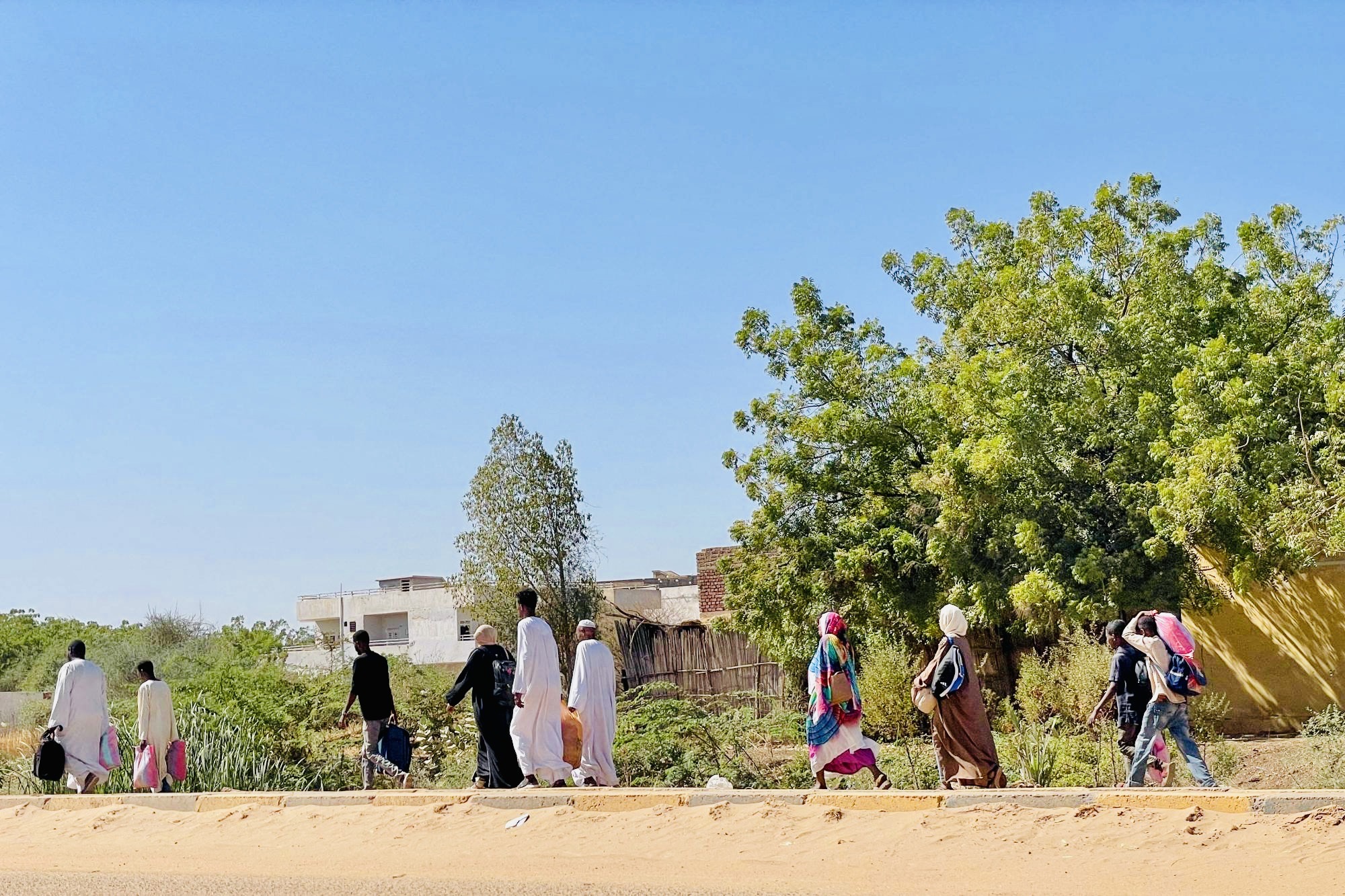
This situation has worsened since the capture of Wad Medani and other towns in al-Jazeera State by the RSF in mid-December 2023. Some 500,000 people have fled these areas, including 234,000 who had already been displaced from Khartoum. The RSF invasion of Wad Medani in December cut off medical supplies to other states and vital treatment for countless patients previously able to access the town, according to Sudan’s Doctors Association.
Many of the capital’s medical facilities had moved to Wad Medani after the outbreak of fighting in Khartoum. Stocks of medical equipment from the Ministry of Health, the World Health Organization and international NGOs such as MSF were based in Wad Medani. Some of the Khartoum medical staff who had fled the capital worked in the Wad Medani facilities, which were in great demand, particularly for chronic diseases.
At the beginning of February 2024, the medical sector at Wad Medani was virtually at a standstill. “The Kidney Dialysis Hospital is working partially, only with one or two doctors and some volunteers. At the Obstetrics and Gynecology Hospital, they tried to work but they couldn’t because due to lack of medical personnel,” said Mohamed Osman, Secretary General of the patients’ association at al-Rama Hospital in Khartoum.
Another consequence of the takeover of Jazeera State by the RSF is that many displaced people have returned to Khartoum, worsening the situation of healthcare facilities in the capital. “The demand for health services in Khartoum has only increased since the violence that engulfed Jazeera State in mid-December,” says MSF Head of Mission, Jean-Guy Vataux. “It led to many health facilities in Wad Medani, the state capital, becoming non-functional, and also to many people returning to Khartoum.”
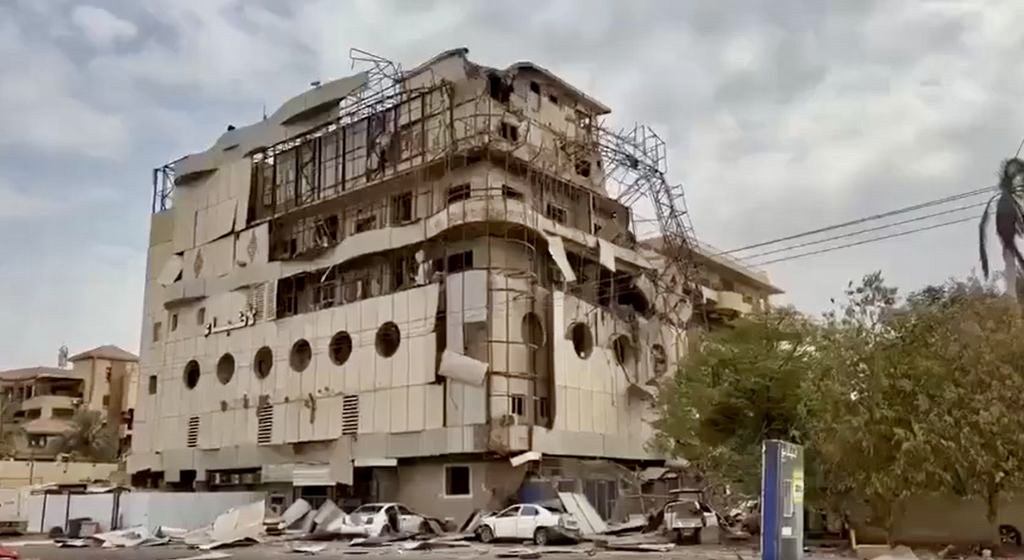
Destruction of healthcare facilities
Many facilities were damaged or destroyed, partially or entirely, from the start of the conflict, first in Khartoum and then in the areas where the war spread, as reported almost day by day by the Central Committee for Sudanese Doctors. Some were caught up in the fighting and suffered damage as a result, while others were deliberately targeted.
Malaz, a nurse at the Helipad Military Hospital in Omdurman, explains:
“In my neighbourhood, all the medical centres are being bombed. I think this is deliberate. Because if there is no hospital in an area, life there is impossible. Why would I stay in a place where there is no hospital? Today, in Omdurman, only the Al Naw Hospital and a small medical centre in Sabreen, the Salam centre, are functioning. The Asham Centre was bombed, and the Romi Medical Centre was bombed twice.”
A military official who agreed to speak to Ayin on the condition of anonymity says that any facility that was primarily supporting the RSF is considered a legitimate target by Sudan’s air force –this includes facilities that treat the armed groups. The official added that the Air Force makes concerted efforts to avoid civilian areas but that the RSF is purposely residing closely among the public to avoid being targeted.
Whether shelled by heavy weapons by the RSF or bombed from the sky by the SAF, medical facilities have shared the brunt of attacks during this ongoing war.
According to the Sama Foundation for Advocacy & Human Rights, SAF aircraft bombed two medical facilities on 11 January 2024 in Nyala, the capital of South Darfur: the Muna’at al-Tebbi Medical Centre in Nyala and the Shifa Care Hospital, both located near the main market. The DCC reports the use of explosive barrels dropped from old Antonov warplanes in these attacks. The impossibility of targeting specific objects with explosive barrels leads to indiscriminate attacks on civilian areas. As a result of these attacks, the two facilities are inoperable.
The RSF also deliberately targeted medical facilities.
A radiologist at the Jabal Auliya Civil Hospital, now a refugee abroad, testified to a direct attack on the hospital. The hospital is located close to a military base held by Sudan’s army. “From a very close distance to the hospital, in front of which the army was stationed, the RSF shelling was pointed directly at the hospital,” the radiologist said. “The lab was damaged, its roof collapsed, and the entire outer wall was bombed.”

In June last year, RSF and aligned militia ransacked the Teaching Hospital in the capital, Zalingei, of Central Darfur State. “There were patients in their beds, they took the mattresses and everything,” recalls an anaesthetist from the hospital. “They started brutally shooting ammunition and all the people went into the warehouses, they took the medicines and the fridges. They then went into the hospital buildings, where they took everything from the doctors, even their clothes and phones.”
The consequences of this attack are considerable. “The accident had a huge impact on health because they took the hospital’s assets, operating machines, medicines and biscuits for the newborns who were suffering from malnutrition,” the anaesthetist told Ayin. “The number of children who died after the days of the attack was very high, at least 40-50 children died and all of them were malnourished because they had a follow-up at the hospital for biscuits, but there were none, so they died because of the war,” he added.
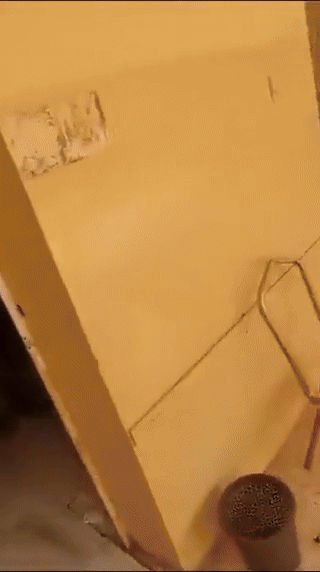
Access to healthcare facilities
In the areas directly affected by the conflict, particularly Khartoum, Darfur and parts of South Kordofan, patients and medical staff are finding it difficult to access the few health facilities still in operation.
Malaz left Khartoum for Wad Medani a few days after the outbreak of conflict in the capital. She worked in Medani and returned to Omdurman shortly after the capture of Medani by the Rapid Support Forces. “In the areas controlled by SAF, people are allowed to move around and get treated. The SAF allow the cases to go to the hospital. On the contrary, in the areas the RSF control, they refuse to let people move regardless of their situation.” A resident of Khartoum, quoted by Ayin, testified about the case of his diabetic mother who died because she couldn’t get to East Nile Hospital in Khartoum. “[the RSF soldier] said to me ‘Go away, this hospital is ours. Citizens are not allowed. I tried to talk to him. I told him there was no hospital nearby and the roads were blocked. I can not take her anywhere else.”
Because of the small number of medical facilities still in operation, patients have difficulty accessing treatment, even when there is no fighting. “It’s very serious,” Malaz said. “The military hospital is out of order. Here, in the whole of Omdurman, the only hospital left is al Naw –it’s overcrowded and full to bursting.”
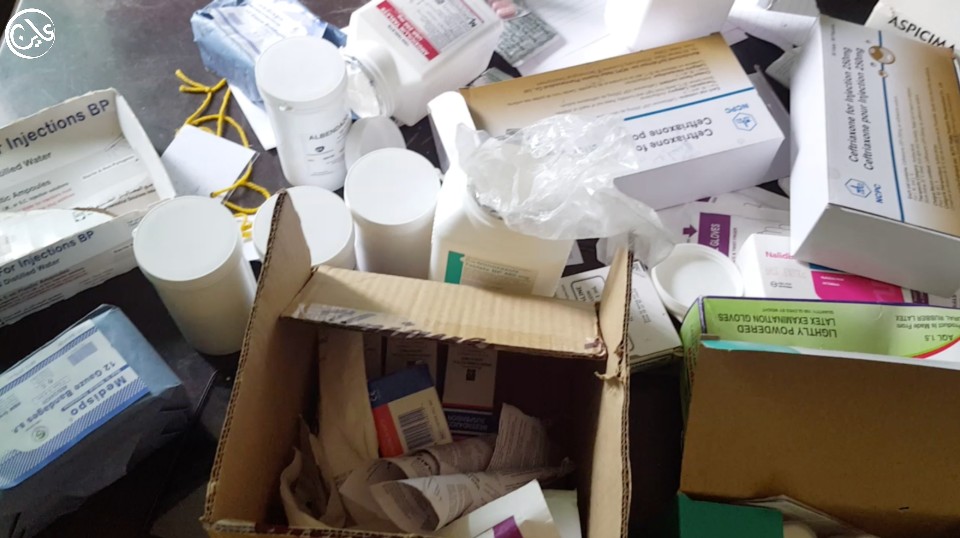
Cuts in the supply chain
In areas directly affected by the war, such as Khartoum, or held by the RSF, such as Darfur and part of al-Jazeera State, there has been a critical shortage of medicines and medical equipment for several months. The country’s de facto authorities are preventing the supply of medical supplies to areas held by the Rapid Support Forces. “Since October, we have regularly been refused permits to enter Khartoum,” Perron told Ayin. “Initially there was a blackout on surgical equipment and then on all medical equipment, with the justification that we were treating RSF troops in our facilities. Perron says their medical stock will run by April.
Key medicines, once readily available before the war, are either no longer accessible or prohibitively expensive, says Nihal al-Tayeb, a doctor and former official in the Ministry of Health. “The price of medicines has risen significantly over the past months due to the scarcity – often reaching prices beyond the current capacity of civilians,” she told Ayin.
“There is a problem in importing medicines from abroad, as about 90% of the companies specialized in importing medicines were looted, in addition to the 27 local pharmaceutical factories in Sudan, based in Khartoum, being destroyed and out of service from the first day of the outbreak of war,” she told Ayin. “This also includes about 2,500 pharmacies in Khartoum being out of service and some of them being looted,” she added.
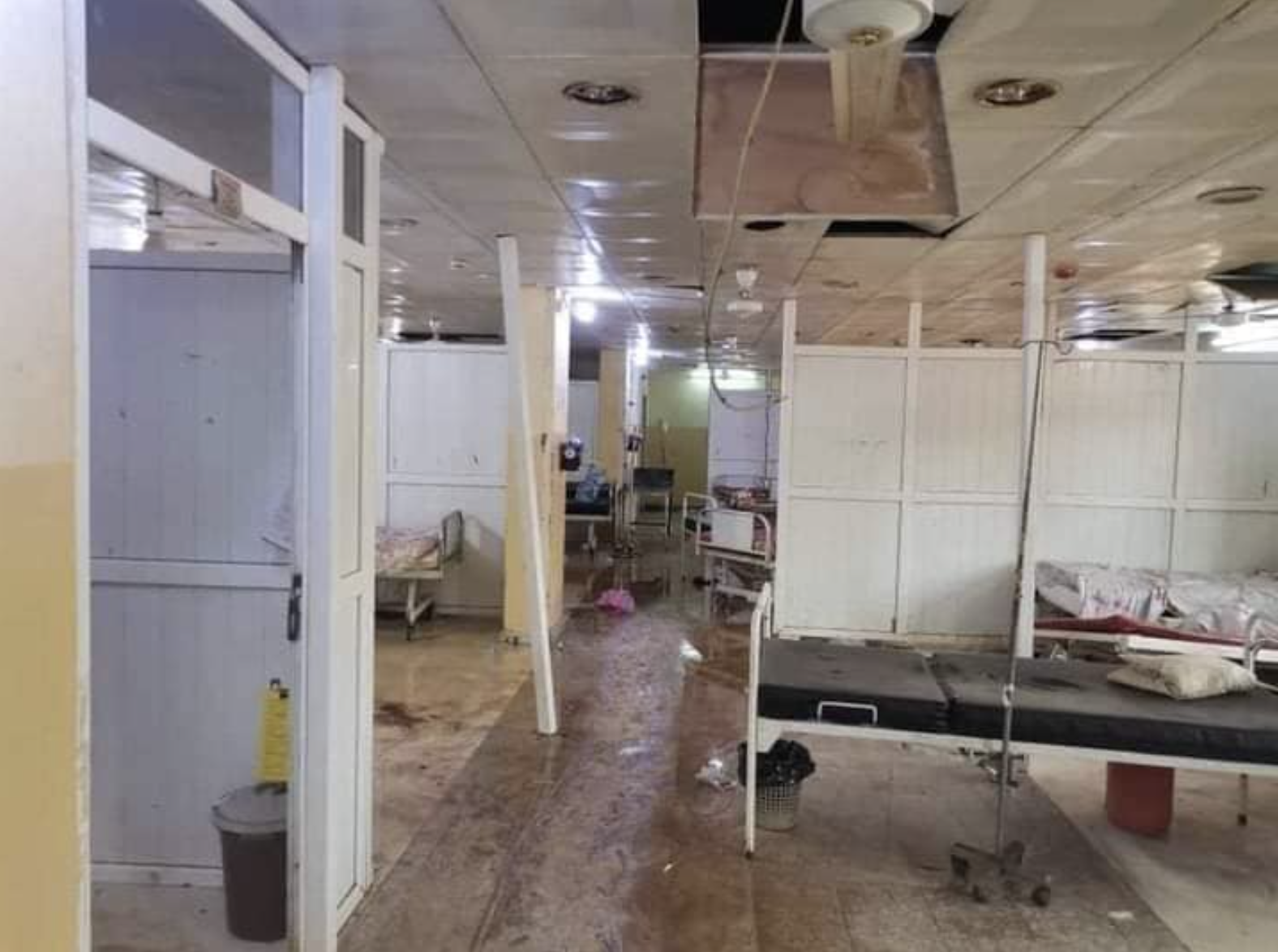
In Omdurman, the al-Nau hospital is one of the very few facilities still in operation, but the staff no longer has the resources to treat patients properly, despite the efforts of the volunteers. One of them, Ahmed Obama, describes the many difficulties in a July 2023 interview:
“The hospital is currently in good condition, but it is very congested as it is the only operational hospital in the city,” says volunteer Ahmed Obama in a July 2023 interview. “This is due to the presence of Rapid Support in the Shuhada area and the closure of other hospitals and dialysis centres in the state. While I’m only 300 meters from the hospital, it can be difficult for others to access, especially those coming from conflict zones.” According to Obama, they are compelled to request support for medical equipment from the public since the Ministry of Health’s medicine warehouses are empty. On 9 October last year, the hospital’s emergency department was hit by shellfire.
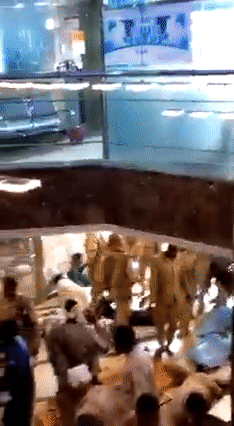
Targeting healthcare: a crime driving up mortality
While a legal vacuum persists during the war, there are few avenues to curb the ongoing targeting of healthcare in Sudan, despite its baleful effect on the populace. In the future, however, such acts may be prosecuted given the serious breaches in international humanitarian law. “Not only are all parties forbidden, under the four Geneva Conventions and its additional protocols ratified by Sudan, to carry out indiscriminate attacks, but also among the protected objects are the medical units that are absolutely prohibited from being attacked, fired upon, or harmed,” says Victoire d’Humieres, Advocacy Advisor for the Sudan Human Rights Hub.
As it stands, the ongoing targeting of medical facilities and personnel by both warring parties invariably contributes to the death rate in Sudan. While the official death rate linked to Sudan’s war is nearly 14,000, medical sources suspect the actual figure could easily double this rate, given the high number of people dying silently from a lack of medical treatment. “Obtaining treatment in Sudan after 10 months of war has become one of the biggest obstacles and threats to life, and its danger comes in second only to the bullets of the conflict,” Dr Nihal Al-Tayeb told Ayin. “Many civilians have died due to a lack of access to medicine or failure to receive timely medical care, as 90% of therapeutic services stopped in Khartoum and the states witnessing armed conflict.”




